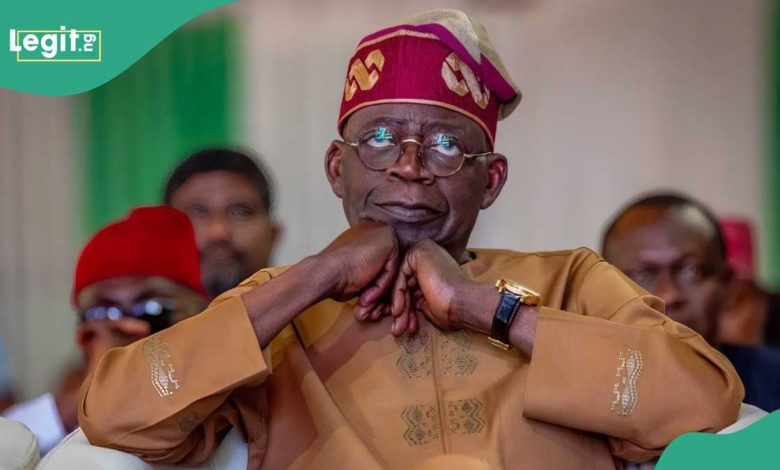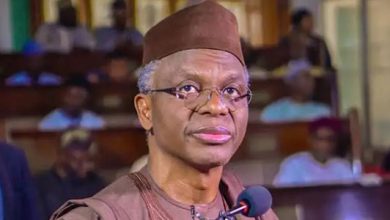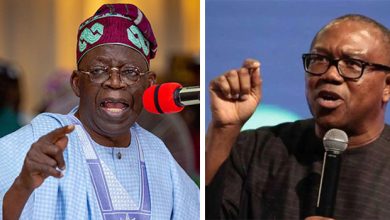Cabinet shake-up: Tinubu demands scorecards as lobby begins

Ahead of the planned cabinet shake-up by President Bola Tinubu, several ministers and their political godfathers have intensified lobbying to retain their positions.
The presidency yesterday stated that President Tinubu would soon rejig his cabinet. This happened as presidential aides told our correspondent that some ministers had started frantic lobbying to be in the president’s good books.
“Yes, that is a typical thing. Some of the ministers will be calling their godfathers to influence the President. It is a normal thing. But the President will still do what is on his mind for the country,” one of the aides said.
Our correspondents learnt that some ministers, who are afraid of being dropped from the federal cabinet and their godfathers, have intensified lobbying, seeking the intervention of the President’s allies and associates, including the Chief of Staff, Femi Gbajabiamila, for a soft-landing.
Another top official said the CoS had expressed concern over the intense lobbying and pressure on Tinubu by those seeking assurances on the fate of their protégés in the Federal Executive Council.
The source stated, “Since reports filtered out that the president would soon reshuffle his cabinet, he has been under immense pressure from political godfathers and ministers who are afraid that they may be dropped from the cabinet.
“Due to the intense pressure, the CoS had to advise the president to take some days off in the United Kingdom after concluding the Forum on China-Africa Cooperation Summit in China two weeks ago.
“Remember that for some days, Nigerians did not know about Tinubu’s whereabouts. After pictures of his meeting with King Charles surfaced online, people started speculating that he went to London for medical checks. The fact is that he was advised to spend a few days to allow the pressure and lobbying to subside.
“Anyway, it is not unusual for politicians to lobby on behalf of their wards but Nigerians are not satisfied with the performance of many of the ministers and the President would have no choice but to let them go. If you are not performing, you have to go, regardless of who your godfather is,” he added.
Sources disclosed that the president may announce the shake-up by October 1, but this paper could not independently confirm the date.
Speaking on Arise TV’s News Night in April, Bala-Usman affirmed that the unit had received performance reports from at least 20 of the 35 ministries. She also explained that the assessment reports would be a product of a joint effort of the ministers, citizens and industry experts.
Bala-Usman said, “Our submission is for the first quarter. So, the first quarter has just ended, and we have initiated the assessment process. The ministers have all been asked to submit their performance based on the deliverables.”
She asserted ministers would be assessed “based on what is out there in the public space. They would write to say, ‘Based on every deliverable you have given me, this is what I’ve done within the first quarter of the year.’”
Meanwhile, Nigerians have expressed increasing frustration and anger over what they perceive as poor performance by some government ministers.
The discontent stems from various issues, including economic challenges, corruption, unemployment, insecurity, and lack of infrastructural development.
Despite high hopes when the ministers were appointed, many Nigerians feel that the promises made during campaigns have not been fulfilled.
Nigerians also feel that the government has not delivered on promises to improve roads, electricity, healthcare, and education.
Other areas of concern include rising inflation, unemployment, and a stagnant economy which have left many Nigerians struggling to make ends meet.
Also, the continued threat from insurgent groups, bandits, and kidnappers has worsened, with many blaming the defence ministers for not doing enough to strengthen security forces or bring lasting solutions to the crisis.
The general hardships and frustration resulted in the #Endbadgovernance protests which rocked the country in August.
The group has also announced another round of protests in October.
Some of the ministers like Amb. Yusuf Tuggar (Foreign Affairs) recorded considerable success after over a year in office.
Tuggar was instrumental in strengthening Nigeria’s bilateral relations with key strategic partners, including countries in Africa, Europe, Asia, and the Americas. Under his stewardship, Nigeria continued to play a significant role within the African Union, especially regarding peace and security efforts in conflict-affected regions such as the Sahel, West Africa, and the Horn of Africa. He also appointed 12 consuls-general and five chargés d’affaires to represent the country in 14 countries on-appointment of new ambassadors 13 months after the former envoys were recalled has been questioned.
Minister of Information and National Orientation, Mohammed Idris, has been lauded for working on initiatives to combat fake news and promote factual reporting, as well as campaigns aimed at fostering national unity and reorienting the citizenry towards positive values. He’s launched the Audience Measurement System and the National Value Charter but has been accused of not communicating government policies and programmes effectively.
Atiku Bagudu (Minister of Budget and National Planning) negotiated the 2023 Supplementary Budget and the 2024 fiscal estimates and their amendment with the National Assembly. He also implemented over 500 selected FG projects implemented in 2023 Capital Appropriation were monitored to ensure accountability and value for money and reimbursed N438.3bn to the FCT and 34 states. So far, 67,038 jobs have been created in the first phase of the 2023 implementation but his policies increased economic hardship.
Reduction of revenue-to-debt service ratio from 97% in 2023 to 68% in 2024 has been one of Wale Edun’s achievements as Minister of Finance. He also paid back N7.3tn Ways and Means obligations and initiated strategic input programme to increase food supply and a pivot to CNG fuel for mass transit vehicles.
However, economic hardship persists as a result of government policies while he’s been criticised for slow rollout of social programmes despite increasing poverty.
Minister of Solid Minerals Dele Alake promoted the diversification of the economy through mining, commissioned the geological and mineral resource maps to guide investors on the locations of key minerals and created a long-term master plan to guide the solid minerals sector but he’s been unable to attract sufficient investors while stakeholders complain of his opaque policies.
Doris Uzoka-Anite (Minister of Trade) paid N50,000 grant to small business owners and engaged with international partners/investors to promote Nigeria’s industrial and trade opportunities. She also streamlined processes related to trade facilitation, reducing delays in customs and port operations. However, she’s yet to begin payment of loans to manufacturers and MSMEs.
Minister of Digital Econmy Bosun Tijani has been instrumental in implementing Nigeria’s Start-up Act, ongoing training and placement of three million technical talents as well as working on initiatives to increase access to venture capital and funding for Nigerian tech startups
But under the minister’s watch, there’s been no progress on plans to increase internet access nationwide. He is also yet to set up OneGov, a one-stop shop for all government services, and investing in innovation hubs nationwide
Minister of Aviation Festus Keyamo initiated moves for return of Emirates Airlines to Nigeria and has supported indigenous airlines and others in the aviation sector to reduce capital flight. He facilitated the commencement of Air Peace operations to the UK and has begun moves to build a second runway at the Abuja Airport. He also facilitated the payment of 45 months of minimum wage arrears owed NiMet workers
Power minister Adebayo Adelabu successfully launched the long-awaited Supervisory Control and Data Acquisition and installed systems used for controlling, monitoring, and analysing industrial devices and processes.
Health minister Prof Muhammad Pate secured a $3 pledge from foreign partners while over 10 million children received tetanus and diphtheria vaccines under his watch.
He also retrained 120,000 health workers, increased school admission quota by 100 per cent in health institutions and facilitated signing of Executive Order on healthcare products.
FCT minister Nyesom Wike inaugurated commercial operations of Abuja metro rail system, resurfaced 135 roads and built several bridges in the city centre. He approved promotion of over 8,000 FCTA staff and 1000 FCDA staff. He completed the construction of the Vice President’s official residence.
The Supreme Court judgment on LG financial autonomy happened under Justice minister Lateef Fagbemi. He also passed into law the 300 per cent judicial salary increment bill. He played key roles in the conviction of 125 Boko Haram terrorists and financiers in mass trial and the £2.1 million in corruption proceeds received from bailiwick of Jersey.
Ekperikpe Ekpo, the Minister of State for Petroleum Resources (Gas), unlocked $3bn investment in the gas sector by resolving issues relating to the execution of the Gas Sales and Purchase Agreement for the Brass Methanol Project. He midwifed the reconstruction of the Midstream and Downstream Gas Infrastructure Fund council and guidelines and unveiled many gas projects since his appointment.



